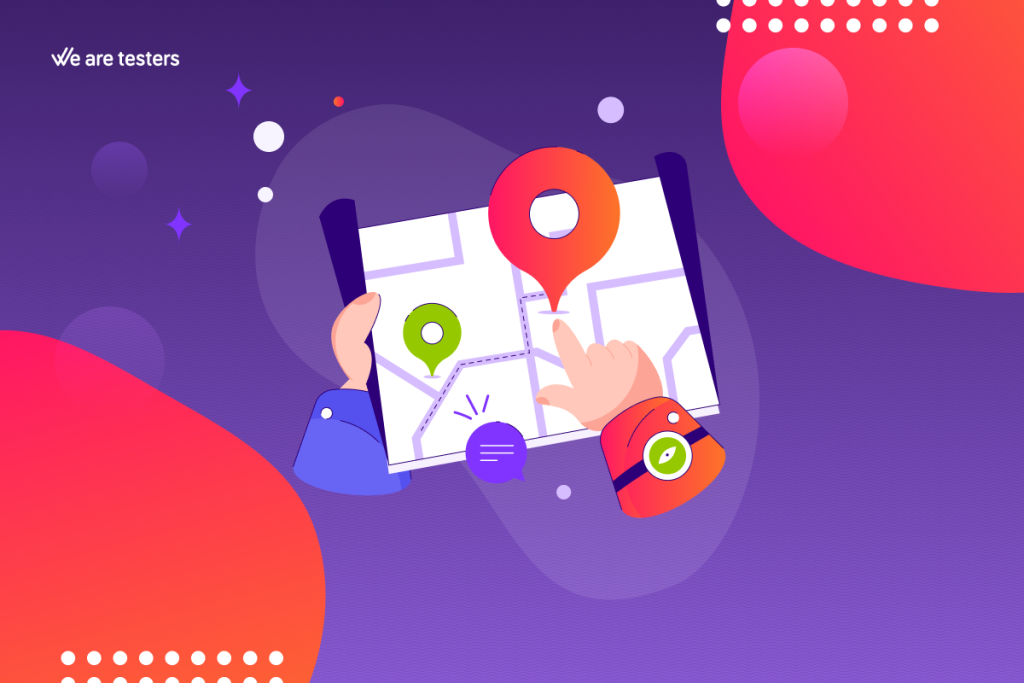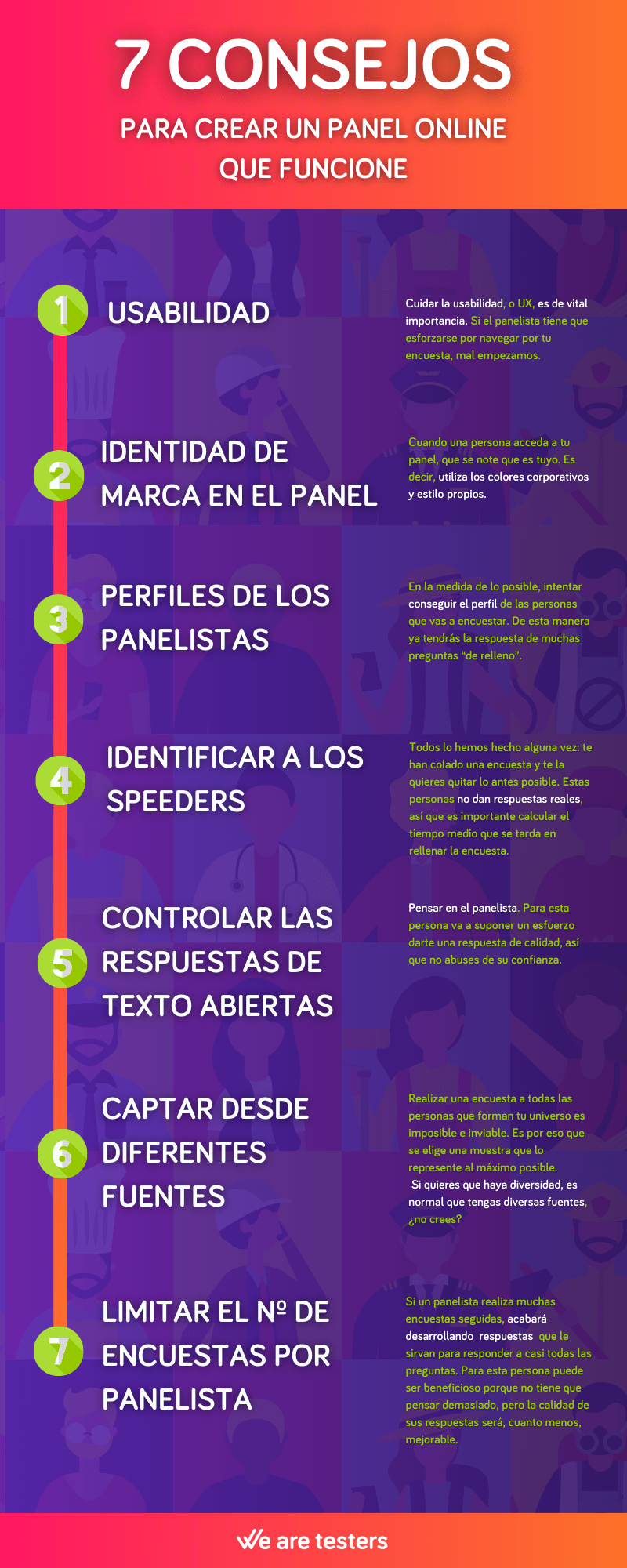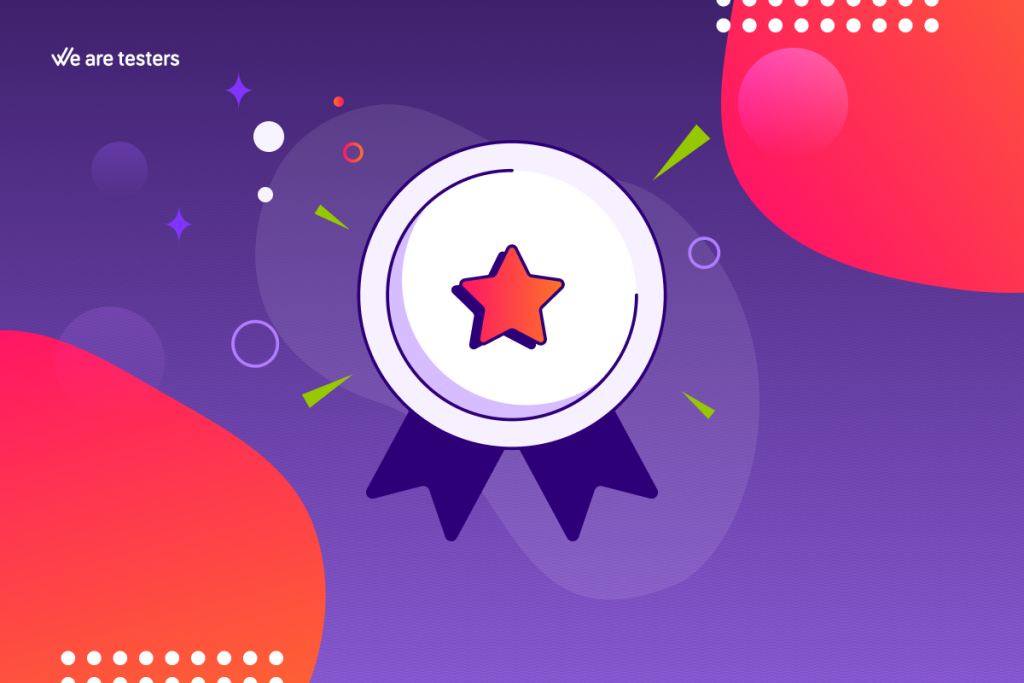
The more we know about our customer or prospect, the better. Even more so in a new era where obtaining first-party data becomes indispensable. A great way to gather information about our target is to conduct market research, whether quantitative or qualitative. Many times, conducting a survey provides all the data we need, but there are times when we need more precision.
For those moments, one of the best tools is the online panel, which allows you, among other things, to obtain in-depth answers to your questions.
In this article, we’ll tell you everything about online panels!
What is an Online Panel and What Are Its Characteristics
An online panel is, to put it colloquially, a survey on steroids. It involves selecting several people who belong to your target audience and conducting in-depth interviews with them.
Furthermore, it’s important to note that these individuals are experts in the field. In other words, if your target audience is people who are into sports, you would select someone with extensive experience in the world of sports, highly qualified to speak on the subject. Interviewing these panelists yields high-quality information and insights.
And does it have more advantages? Absolutely! Although finding and filtering the right panelists may seem like a daunting task, conducting an online panel is quite accessible when pre-work has been done.
Market research companies like We are testers already have a large pool of registered panelists on our platform, and we also manage our own online communities. These users are consistently and recurrently qualified.
This means that you can conduct the panel (and obtain the data) quickly and implement the findings into your strategy.
And, in turn, this agility translates into cost reduction. So, in addition to being easily accessible, it’s a very cost-effective option!
Two Aspects to Consider in Managing an Online Panel
Managing an online panel is not easy. You have to consider a large number of variables, and that can overwhelm you fairly quickly.
We have compiled and categorized the most important ones into two major groups:
Online Panel: Technical Development
First of all, you should always ensure that the questionnaire can be completed correctly. In other words, it should not be challenging for the panelist. Remember, no matter how many incentives you offer, that person is helping you, not the other way around.
Some of the questions you may ask include: Is the loading speed adequate? Is navigation easy and straightforward? Is there an email or phone number they can contact if they need assistance? (hint: there should be) Are the incentives I offer sufficient?…
Keep in mind that attention to detail also benefits you because a high-quality panel will provide you with high-quality answers (and data).
The Human Aspect of the Online Panel
If the technical aspect is important, the human aspect is even more so.
A user panel can be perfect in technical terms, but if it lasts an hour, you won’t get answers. Many experts say that the perfect survey (or questionnaire) should last about 15 minutes, 20 at most.
By the way, is it easier to acquire new customers or retain the ones you have?
Certainly, retaining them is easier! The same concept can be applied in this case. That’s why it’s highly recommended to create a community with your panelists. This way (besides being more cost-effective), you can get more honest responses. After all, if a person feels comfortable in their environment, they can express themselves more freely.
Tips for Creating an Effective Online Panel
If the previous point didn’t clarify what you can do to improve your online panel, here are some tips:
Usability
Ensuring usability, or UX, is of vital importance. If the panelist has to make an effort to navigate your survey, it’s not a good start. In principle, they have come to answer some questions, and it shouldn’t be a challenge to do so.
Brand Identity in the Online Panel
By this, we mean that when a person accesses your panel, it should be evident that it’s yours. In other words, use corporate colors and your unique style. Generally, using generic designs is not highly recommended.
Panelist Profiles
Do you get tired when you’re asked the same questions repeatedly? Well, panelists feel the same way. That’s why, as much as possible, try to obtain information about the people you’re surveying. This way, you already have the answers to many «filler» questions.
Identify Speeders
We’ve all done it at some point. You’re given a survey, and you want to finish it as quickly as possible. Obviously, you don’t respond honestly; you just choose the first option that comes up. These people don’t provide real answers, so it’s important to calculate the average time it takes to complete the survey. If someone stands out too much, that’s not good.
Control Open-Text Responses
Open-text responses are very tempting for us. An endless range of possibilities, all the information in the world in a small box. But think about the panelist. Giving a quality response requires effort on their part, so don’t abuse their trust.
Recruit from Different Sources
Surveying everyone in your universe is impossible and impractical. That’s why you choose a sample that represents it as closely as possible. If you want diversity, it’s normal to have various sources, don’t you think?
Limit the Number of Surveys per Panelist
This may seem a bit contradictory because the more surveys, the more information, right? Yes and no. If a panelist completes many surveys in a row, they will end up developing (intentionally or unintentionally) standardized answers that work for almost all questions. This may be beneficial for that person because they don’t have to think too much, but the quality of their answers will be, at best, suboptimal.
How do you feel about it? Would you like to try our panel? We hope you challenge us.
Update date 14 April, 2024



